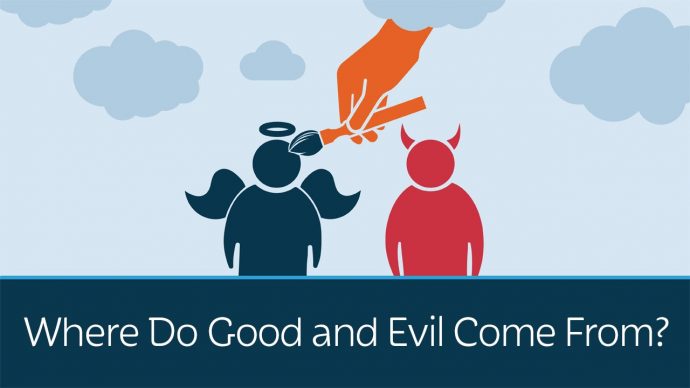From Prager University — below the video is the opening of the transcript:
I’m going to argue for the existence of God from the premise that moral good and evil really exist. They are not simply a matter of personal taste. Not merely substitutes for “I like” and “I don’t like.”
Before I begin, let’s get one misunderstanding out of the way. My argument does not mean that atheists can’t be moral. Of course atheists can behave morally, just as theists can behave immorally.
Let’s start then with a question about good and evil: ‘Where do good and evil come from?”
Atheists typically propose a few possibilities. Among these are evolution, reason, conscience, human nature, and utilitarianism.
I will show you that none of these can be the ultimate source of morality.
Why not from evolution? Because any supposed morality that is evolving can change. If it can change for the good or the bad, there must be a standard above these changes to judge them as good or bad. For most of human history, more powerful societies enslaved weaker societies, and prospered. That’s just the way it was and no one questioned it. Now we condemn slavery. But based on a merely evolutionary model, that is an ever-changing view of morality, who is to say that it won’t be acceptable again one day? Slavery was once accepted, but it was not therefore acceptable. And if you can’t make that distinction between accepted and acceptable, you can’t criticize slavery. And if you can make that distinction you are admitting to objective morality.
What about Reasoning? While reasoning is a powerful tool to help us discover and understand morality, it cannot be the source of morality. For example, criminals use reasoning to plan a murder — without their reason telling them that murder is wrong. And was it reasoning — or something higher than reasoning — that led those Gentiles who risked their lives to save Jews during the Holocaust? The answer is obvious: it was something higher than reasoning — because risking one’s life to save a stranger was a very unreasonable thing to do.
Read more: Prager University

